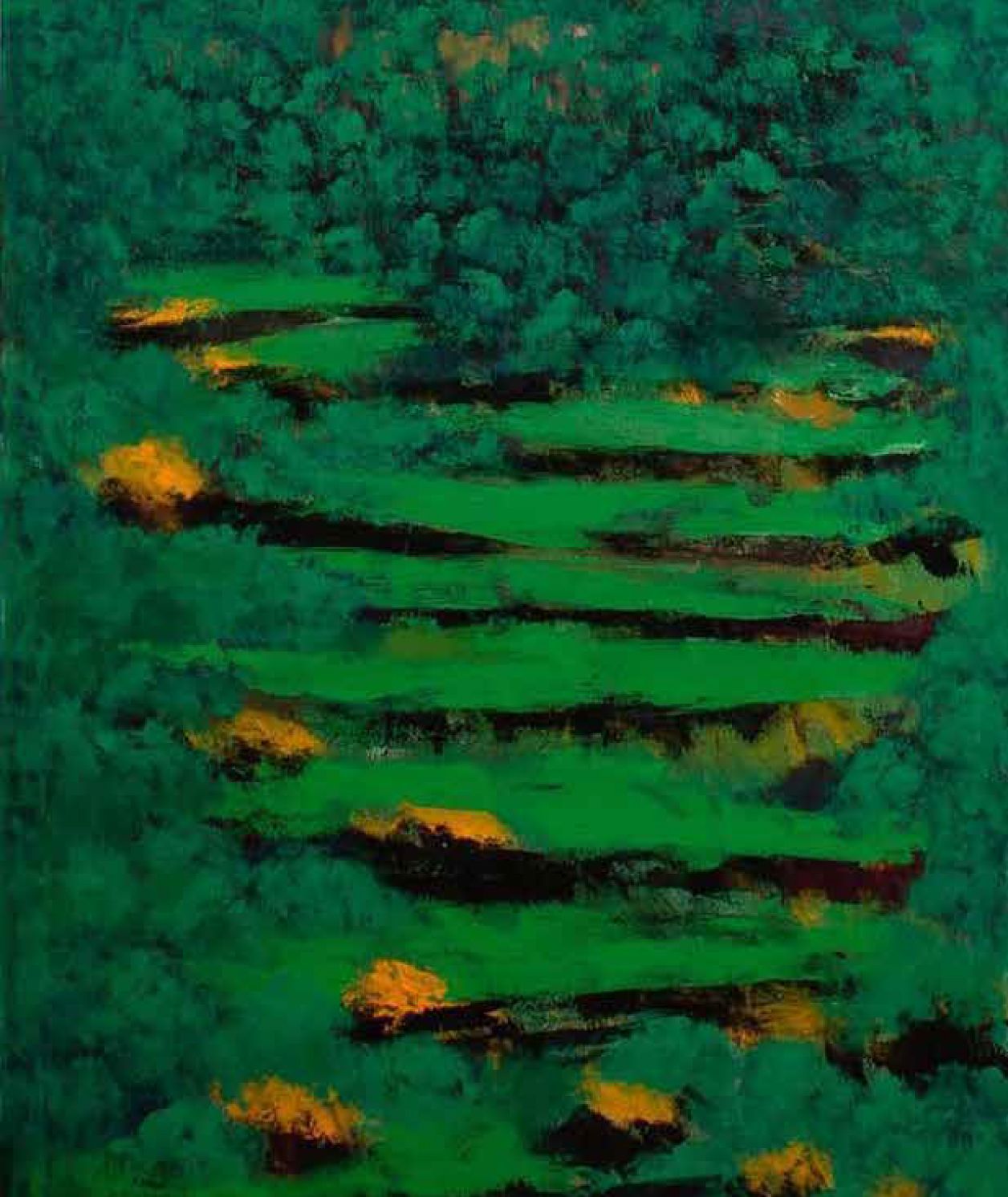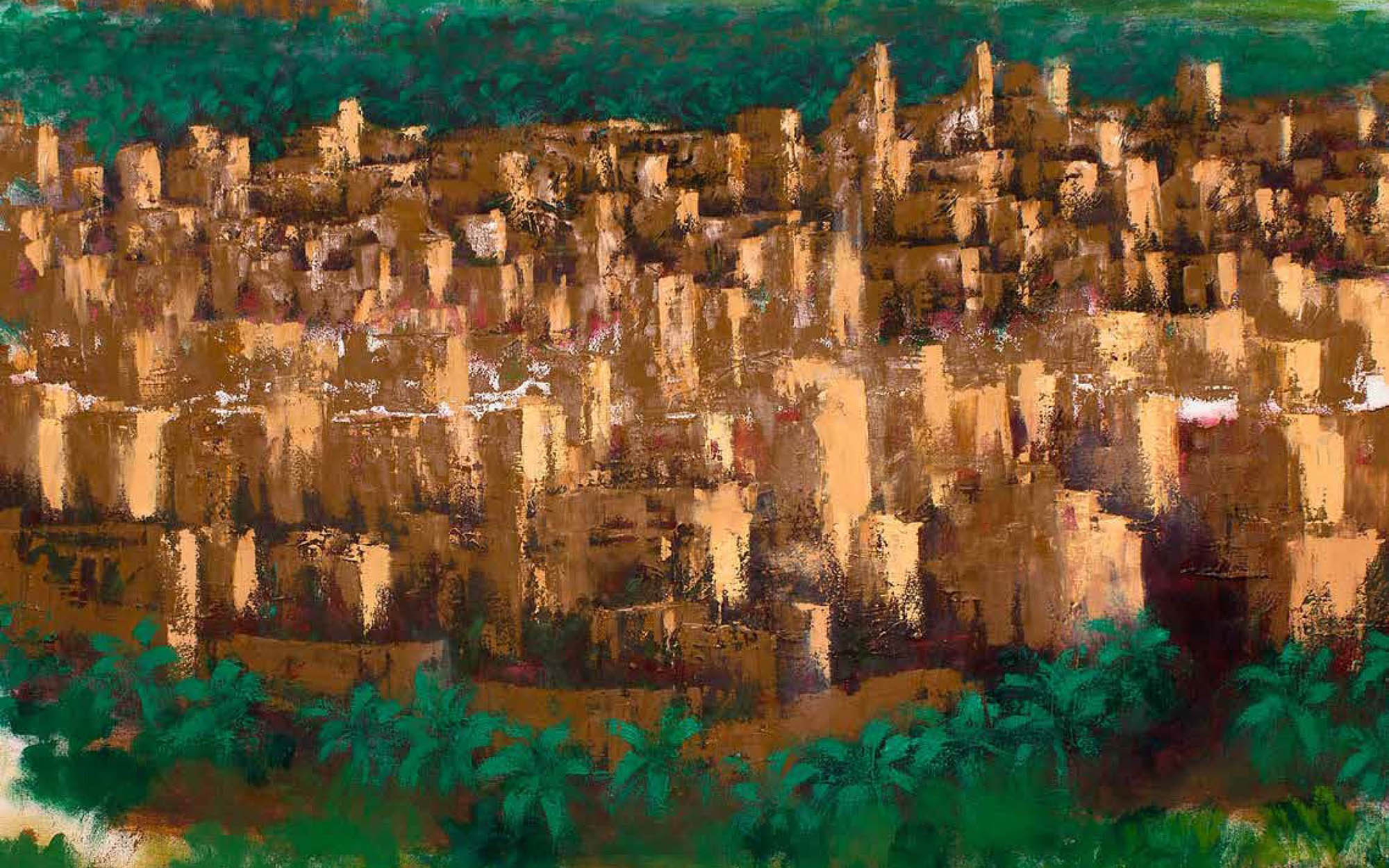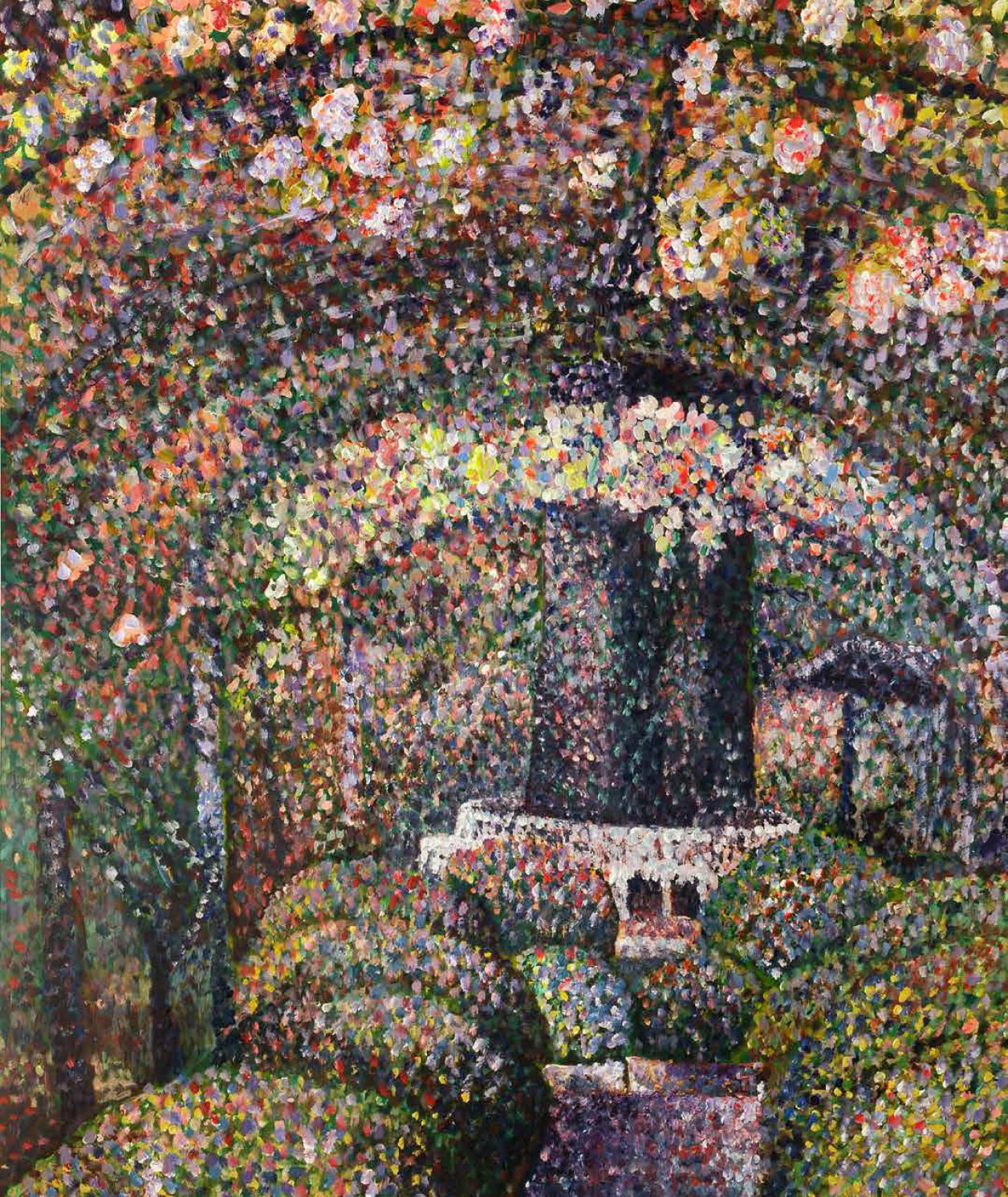The scent of seeing
‘Cascade Series 2,’ by Daniah Al-Saleh. Watercolor and pencil, 104 x 170 cm, 2014. Art courtesy of the artist and Athr Gallery, Jeddah.
‘Whence comes the perfume of the rose, and whence
The spirit-larva which the body blights?
Whence does the nettle get its bitter sting?
Whence do the honey bees their honey bring?
Whence our Companions, too—our Whence and Why?
O Soul, I do not know a single thing!’
It is said, that Abu Al-Ala Al-Ma’arri’s collection of poems such as these lines here, from Luzumiyat, original title Luzum ma la Yalzam— the Necessity of what is Unnecessary—are the kind of poems that should be read while resting under a tree in a garden.
The 10th century Syrian poet, writer and scholar, who was blinded at a young age due to smallpox, revered nature and all its creatures, becoming one of
the earliest known committed vegans, and an advocate for animal rights. In his famous poems titled “I no longer steal from nature,” he expresses great compassion and says: “Do not unjustly eat fish the water has given up / And do not desire as food the flesh of slaughtered animals / Or the white milk of mothers who intended its pure draught for their young, not noble ladies / And do not grieve the unsuspecting birds by taking eggs; for injustice is the worst of crimes…”
Known as the “the Voltaire of the East,” Al-Ma’arri’ poems were cynical and deep, often contemplating the meaning of life around him, garnering wisdom and lessons from mother nature. His pieces often feature trees, flowers, and the power of touch and scent, senses he must have relied on to understand the world around him.
It is said if one was looking for Al-Ma’arri’, then look inside a garden. He died as he lived, when in the spring of 1055/57 he was buried in his favorite spot: his beloved garden.


